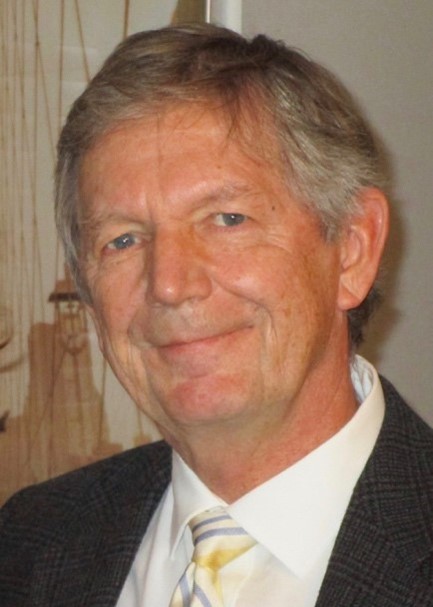
We Protect You in Your Sleep
by feedback-controlled delivery of drugs during anesthesia
Dr. Ernő I. Lindner R. Eugene Smith Professor of Biomedical Engineering and Professor of Chemistry
ET 321D
elindner@memphis.edu
(901) 678-5641
Research interests: Development and application of chemical and biosensors.
Education:
M.S. Chemical Engineering, Technical University of Budapest, Hungary, 1971
C.Sci. Analytical Chemistry, Hungarian Academy of Sciences, 1984
Ph.D. Analytical Chemistry, Technical University of Budapest, Hungary, 1985
D.Sci., Analytical Chemistry, Hungarian Academy of Sciences, 1994
Brief Research Summary and Biosketch:
Dr. Lindner studied Chemical Engineering at Technical University of Budapest. After
graduation, he started to work in the Department of Analytical Chemistry of the same
institution. This was only a few years after the pioneering work of his mentor Ernő
Pungor, on ion-selective electrodes (ISEs). At that time, it was not clear that the
discovery of ISEs will change critical care diagnostics and blood analysis for good.
The beginning of his scientific carrier Dr. Lindner focused on studies related the
response mechanism of ISEs to improve their performance characteristics, e.g., response
time, selectivity, and detection limit. He became a biomedical engineer when he received
an opportunity to work in the first NSF Engineering Research Center (ERC) in Biomedical
Engineering, the Center for Emerging Cardiovascular Technologies, at Duke University
on the in vivo implementation of ISEs. In the frame of this multi-university effort
(Duke, UNC Chapel Hill, NC State and Case Western Reserve University) he developed
microfabricated chemical sensors for monitoring the chemical markers of induced ischemia.
In vivo measurements require reliable biocompatible sensors with superb long-term
stability and extended lifetime. In the NSF ERC Dr. Lindner worked on biocompatibility
of implanted ion-sensors and developing methods for the determination of the residual
lifetime of implanted sensors. In the Department of Biomedical Engineering at the
University of Memphis, with his students he focused on the practical applications
of chemical sensors. In collaboration with physicians at Le Bonheur Children Hospital,
The University Tennessee Health Science Center, and Instrumentation Laboratory he
works on chemical sensors with short equilibration time (e.g., K+, Na+, H+, Ca2+)
and superb long-term stability using superhydrophobic, inherently conductive polymers
as solid contact on sensor platforms prepared by thin-, and thick-film microfabrication
technologies. The chemical sensors developed in Dr. Lindner’s laboratory are used
for monitoring Na+ concentrations and CO2 levels in the urine of critically ill patients
(e.g., diabetic ketoacidosis and septic shock) and a variety of highly hydrophobic
drugs, like tricyclic antidepressants and the fast-acting anesthetic drug propofol.
To reduce the required sample volume for analysis, most recently he works on the synthesis
of reagent-loaded porous polymeric nanocapsules for the measurement of the pH and
glucose concentrations in sub-microliter samples, e.g., in the tear fluid of patients
with dry eye syndrome.
Dr. Lindner published one book, 174 peer reviewed journal articles, 25 book chapters,
12 patent disclosures, and gave 270+ conference presentations and invited lectures.
His papers received over 9000 citations. Dr. Lindner mentored 29 MS, 13 PhD students.
During his stay at the University of Memphis 9 international students, 11 post-doctoral
fellows and 3 visiting professors worked in his laboratory. His students received
24 awards for their work in Dr. Lindner’s laboratory and 3 of his PhD students had
the opportunity to work abroad (Hungary, Finland) during their graduate studies in
collaborating institutions. Dr. Lindner is a IUPAC fellow and regular reviewer for
variety of chemical sensing and analytical chemistry related journals.
Publications:
https://scholar.google.com/citations?user=51fDe4IAAAAJ&hl=en
Honors/Distinctions:
External Member of the Hungarian Academy of Sciences, 2022
Board of Visitors, Willard R. Sparks Eminent Faculty Award, University of Memphis,
2010
Alumni Association, Distinguished Research Award, Sci., Eng, Math., University of
Memphis 2009
R. Eugene Smith Professor of Biomedical Engineering, University of Memphis, 2007
Outstanding Faculty Research Award, Herff College of Engineering, 2007
Ballard Professor of Biomedical Engineering, Herff College of Engineering, 2006
Award of the Hungarian Academy of Sciences, 1990
Award of “Best Scientific Paper of the Year, Hungarian Journal of Chemistry, 1989
Honored Inventor, Hungarian Ministry of Industry, 1986

